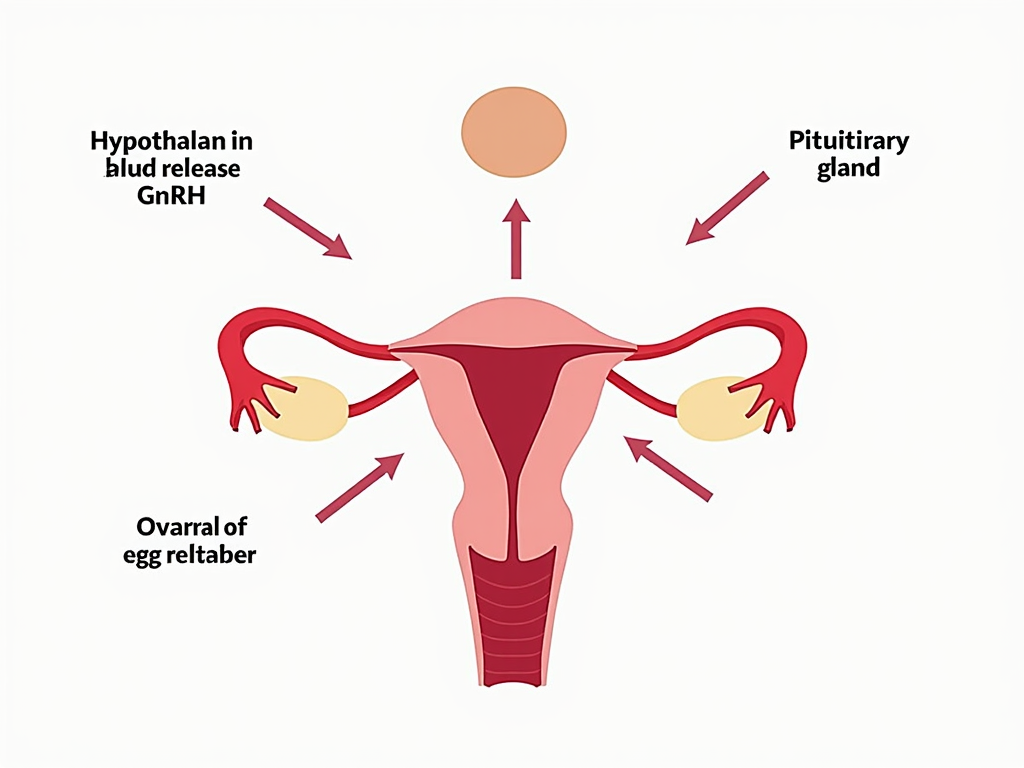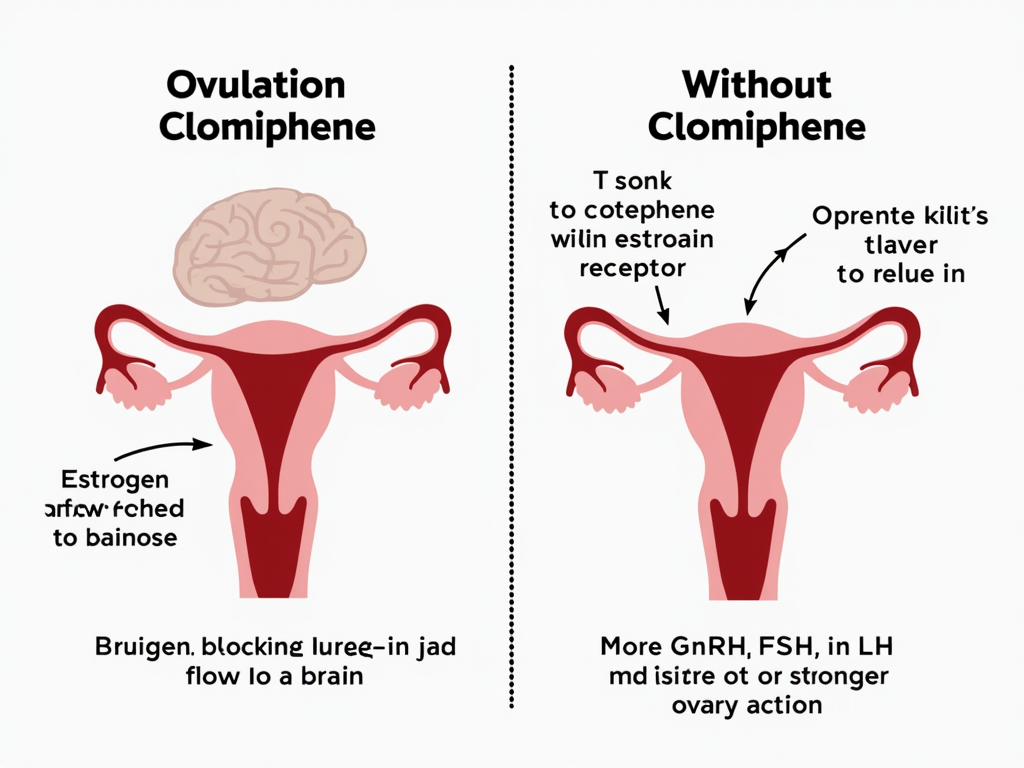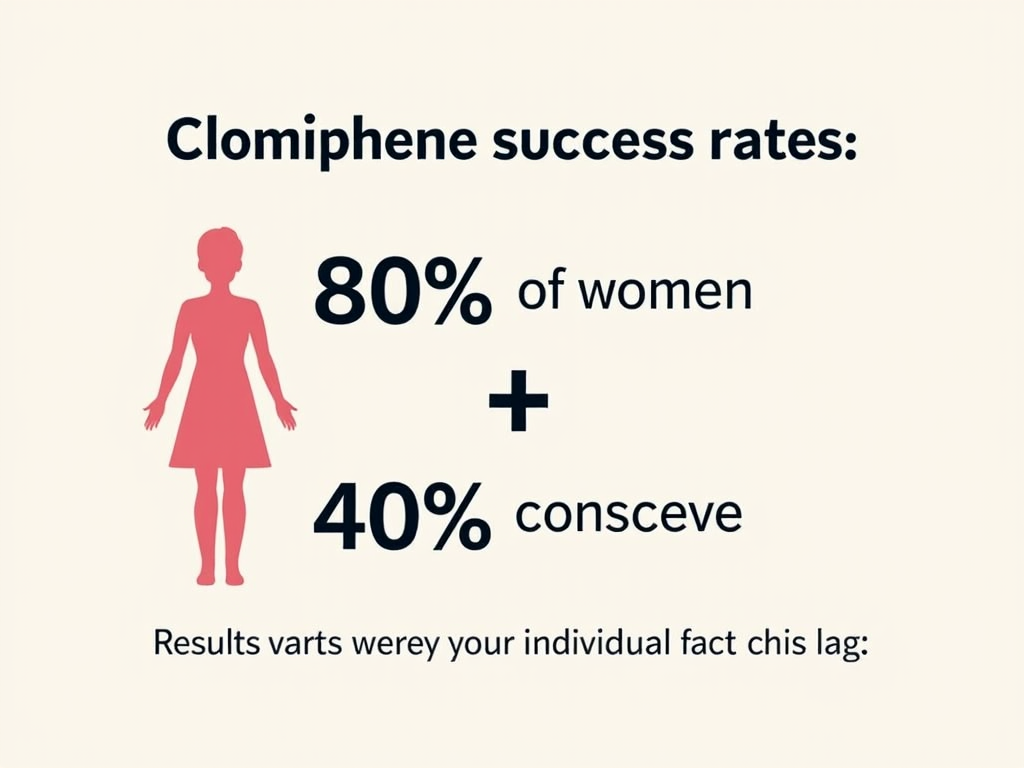How Clomiphene Works in the Body
March 17, 2025, 5:27 p.m.
Clomiphene is a popular medication used to treat infertility in women. It helps by encouraging the ovaries to release eggs, a process called ovulation. As one of the most common fertility drugs, Clomiphene offers hope to many who dream of starting a family.
To understand how Clomiphene works in the body, let’s first look at how ovulation happens naturally. Ovulation is when an egg is released from the ovary. It’s a key step for getting pregnant, and hormones control the whole process.
It starts in the brain with the hypothalamus. This small area releases a hormone called GnRH. That hormone tells the pituitary gland to make two other hormones: FSH and LH.
FSH, or follicle-stimulating hormone, helps eggs grow inside tiny sacs in the ovaries called follicles. As these follicles grow, they produce estrogen. Estrogen gets the uterus ready for pregnancy.
When estrogen levels get high enough, it signals the pituitary gland to release a big burst of LH, or luteinizing hormone. This LH surge triggers the follicle to release its egg. That’s ovulation!

Now, here’s where Clomiphene comes in. It’s a type of medicine that tricks the body into thinking estrogen levels are low. It does this by sticking to estrogen receptors in the hypothalamus and blocking them.
When the hypothalamus can’t sense estrogen, it assumes there’s not enough. So, it ramps up GnRH production. More GnRH means the pituitary gland pumps out extra FSH and LH.
With higher FSH, more follicles grow in the ovaries. The extra LH helps trigger ovulation. This is how Clomiphene works in the body to boost the chances of releasing an egg.

Clomiphene is especially helpful for women who don’t ovulate regularly or at all. This problem, called anovulation, often happens with polycystic ovary syndrome, or PCOS. PCOS messes with hormone levels, making ovulation tricky.
For many, infertility feels like a heavy burden. I’ve talked to friends who’ve gone through it—months of hope, disappointment, and waiting. One friend, Lisa, struggled with PCOS for years. She felt lost until her doctor suggested Clomiphene.
Lisa took Clomiphene for a few months. She told me how nervous she was, but also excited. After two cycles, she ovulated and soon got pregnant. Hearing her joy reminded me how life-changing fertility drugs can be.

But Clomiphene isn’t perfect. It can cause side effects like hot flashes, bloating, or sore breasts. Some women also feel moody or emotional while taking it. These usually go away, but they’re worth knowing about.
There’s also a chance of twins or more. Clomiphene can make the ovaries release multiple eggs. While twins sound fun to some, multiple pregnancies can be riskier for mom and babies.
Not everyone responds to Clomiphene, though. If it doesn’t work after a few tries, doctors might suggest stronger doses or other options like shots or IVF. It’s not a one-size-fits-all fix.

Clomiphene has been around since 1967. It’s usually taken as a pill for five days early in the menstrual cycle. Most start with 50 mg a day, but the dose can change based on how the body reacts.
After the last pill, ovulation often happens within 5 to 10 days. Doctors might use ultrasound or blood tests to check timing. This helps couples know the best time to try for a baby.
Studies say about 80% of women ovulate with Clomiphene. Of those, around 40% get pregnant within six cycles. Success depends on things like age and the reason for infertility.

Common Side Effects of Clomiphene: - Hot flashes - Bloating - Breast tenderness - Mood swings These are usually mild but can feel uncomfortable.
Compared to other fertility drugs, Clomiphene is often the first choice. Alternatives like letrozole or shots work differently. Each has pros and cons, so doctors pick what’s best for each person.
In short, Clomiphene helps women with ovulation problems by tweaking hormone signals. It’s affordable and widely used, but it’s not for everyone. For many, it’s a step toward parenthood despite some challenges.